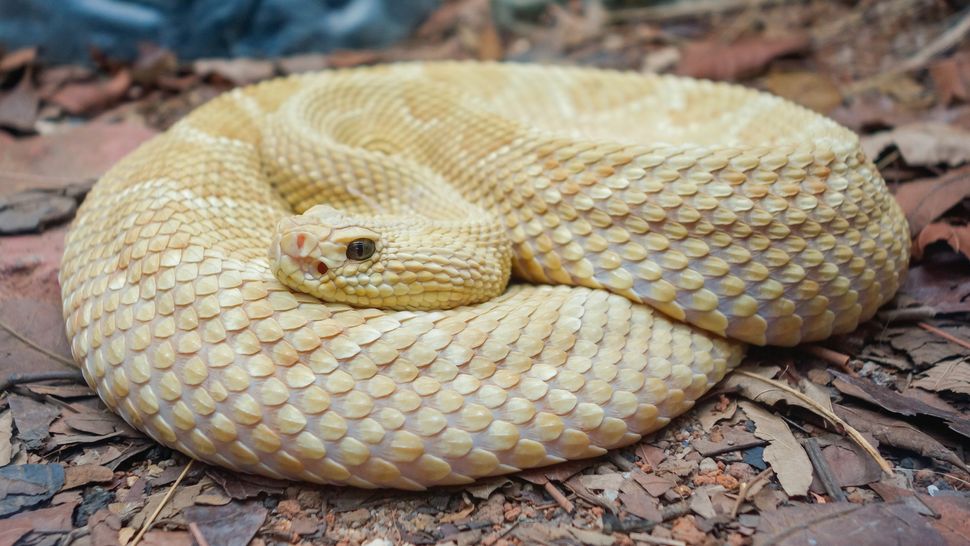Snake Island: The isle writhing with vipers where only Brazilian military and scientists are allowed
By Sascha Pare published 11 hours ago
Snake Island was isolated from the Brazilian mainland at the end of the last ice age, trapping Earth's only known population of highly venomous golden lancehead pit vipers on a rock in the Atlantic.

A golden lancehead pit viper curled up on Snake Island in Brazil.
The golden lancehead (Bothrops insularis) is one of the most venomous snakes in South America. (Image credit: caio acquesta via Getty Images)
Snake Island is a small, forested island off the coast of Brazil that writhes with thousands of venomous vipers. The snakes, which grow up to 3.9 feet (1.2 meters) long, are golden lancehead pit vipers (Bothrops insularis). They are so venomous, the Brazilian navy has closed the island to the public since the 1920s.
The island sits about 21 miles (34 kilometers) off the coast of southeastern Brazil and covers an area of 106 acres (43 hectares), which is equivalent to about 80 American football fields. Rainforest blankets more than half of the island, while the rest is barren rock and grassland.
Snake Island was once connected to the mainland, but rising sea levels submerged the land bridge around 10,000 years ago, at the end of the last ice age. This separation trapped a population of golden lanceheads on the island, where the snakes rapidly adapted to the conditions and multiplied. Their venom has evolved to kill the species that were trapped with them, as well as migratory birds.
Snake Island is devoid of mammals, so golden lanceheads have no natural predators; their venom is intended for hunting prey, rather than for defense. Research suggests their venom is the fastest-acting of any lancehead snake (Bothrops) and five times as potent as that of a closely related species (Bothrops jararaca) that lives on the mainland, likely because catching birds requires a swift kill.
More:
https://www.livescience.com/planet-earth/snake-island-the-isle-writhing-with-vipers-where-only-brazilian-military-and-scientists-are-allowed
